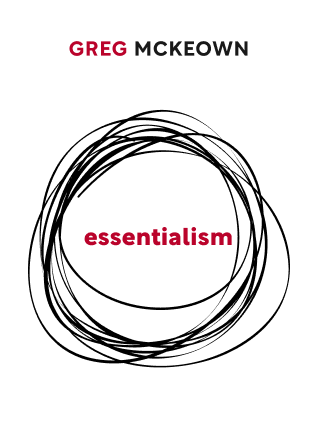

This article is an excerpt from the Shortform book guide to "Essentialism" by Greg McKeown. Shortform has the world's best summaries and analyses of books you should be reading.
Like this article? Sign up for a free trial here .
What is your purpose in life? Have you already decided on what you want to accomplish in your lifetime? Why is finding your purpose important?
A surprising number of people can’t answer the question of what their purpose is. Many don’t have the slightest idea of where they see themselves in the next five years. But finding your purpose in life is not rocket science. All you need to do is ask yourself these two questions: 1) what’s the one thing I want to be the absolute best at? and 2) what will success look like?
Read about the importance of finding your purpose in life.
Finding Your Purpose in Life
In work and in your personal life, you must decide your intent or purpose, the vital thing you’re trying to achieve that’s distinct from the many nonessential options and opportunities you could pursue.
Finding your purpose makes any further decisions unnecessary or makes them easier. For instance, deciding on a specific profession like law or medicine eliminates myriad options and sets a future course. Once a critical decision is made, subsequent choices fall into alignment while other options become moot.
When the British prime minister appointed Martha Fox Lane to be the UK’s first “Digital Champion,” she had to establish a purpose. Avoiding a typical vague mission statement, she came up with a clear, measurable intent that motivated and empowered her team: get everyone in the UK online by the end of 2012.
As you embark on the journey of finding your life purpose, ask yourself these two questions:
1) What do I want to be the absolute best at? When it comes to finding your purpose in life, it’s tempting to get stuck in debates over wording or succumb to cliches and jargon. Instead, focus on answering the essential question that sets the stage for everything else you do: what’s the one thing you want to be the absolute best at?
2) What will success look like? The second key to finding your purpose is answering the question, what will success look like? If you can’t define success in a way that’s measurable, your purpose won’t inspire anyone to achieve it. That’s why many grandiose statements of purpose (for instance, eliminating world hunger) fail to motivate.
Actor Brad Pitt came up with a concrete and inspirational purpose when he formed an organization to help victims of Hurricane Katrina. It was “to build 150 affordable, green, storm-resistant homes for families living in the Lower 9th Ward.” It answered the question of how the group would know when it had succeeded.
During the 27 years that anti-apartheid activist Nelson Mandela spent in prison, he honed an essential intent to the exclusion of everythng else, including resentment: eliminating apartheid in South Africa. He not only succeeded but went on to become the country’s first black president.
When Teams Lack Purpose
Clarity of purpose consistently predicts how well people will do their jobs. When teams lack absolute clarity about what they’re trying to achieve, their motivation and cooperation lag. People become frustrated and waste time on nonessentials. No amount of training in teamwork and communication will make a team succeed if the members are unclear about their goals and roles.
There are two common outcomes when teams aren’t clear on their purpose: members play politics and everyone pursues his or her own agenda.
1) Playing Politics: Instead of making their optimum contribution to the group’s goal, team members vie for the manager’s favor or attention by doing such things as undercutting peers, trying to look important, or echoing whatever the manager says or seems to want. These things are both nonessential and counterproductive.
When we lack clear personal goals and values, we behave similarly, making choices that are political or competitive. For instance, we focus on nonessentials like having a nicer car or living in a nicer area than someone else does. Essential activities, such as family relationships and health, get short shrift.
2) Everyone for himself: When teams lack purpose, members pursue their own interests. Their pursuits may conflict with other members’ activities. When many people pursue different activities, neither the members nor the team makes their optimum contribution and the team’s results fall short. In contrast, when teams are clear about their purpose and members perform at their optimum levels, momentum builds and the whole — the collective contribution — is greater than the sum of the parts.

———End of Preview———
Like what you just read? Read the rest of the world's best book summary and analysis of Greg McKeown's "Essentialism" at Shortform .
Here's what you'll find in our full Essentialism summary :
- How to do less but to do it better
- Why you need to be disciplined in your pursuit of less
- How you can learn to say no






